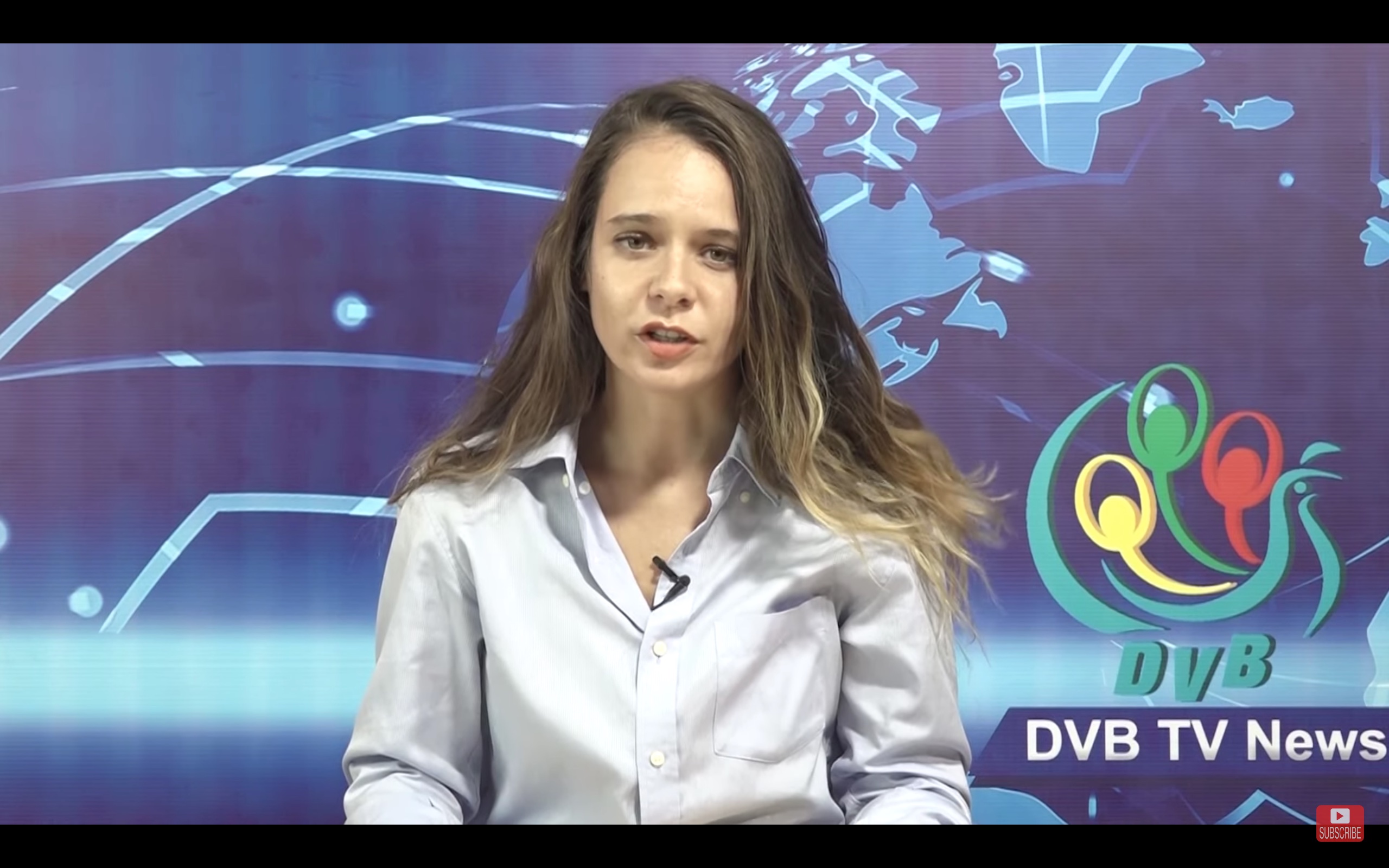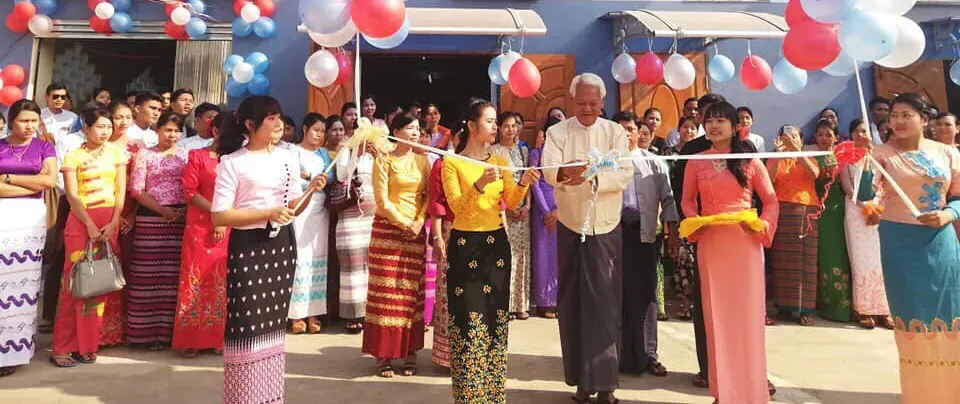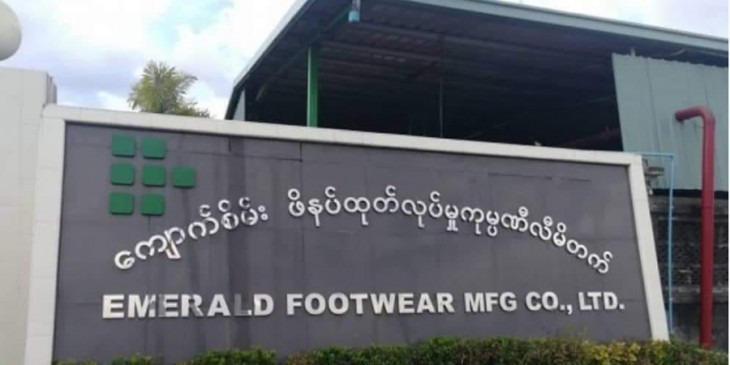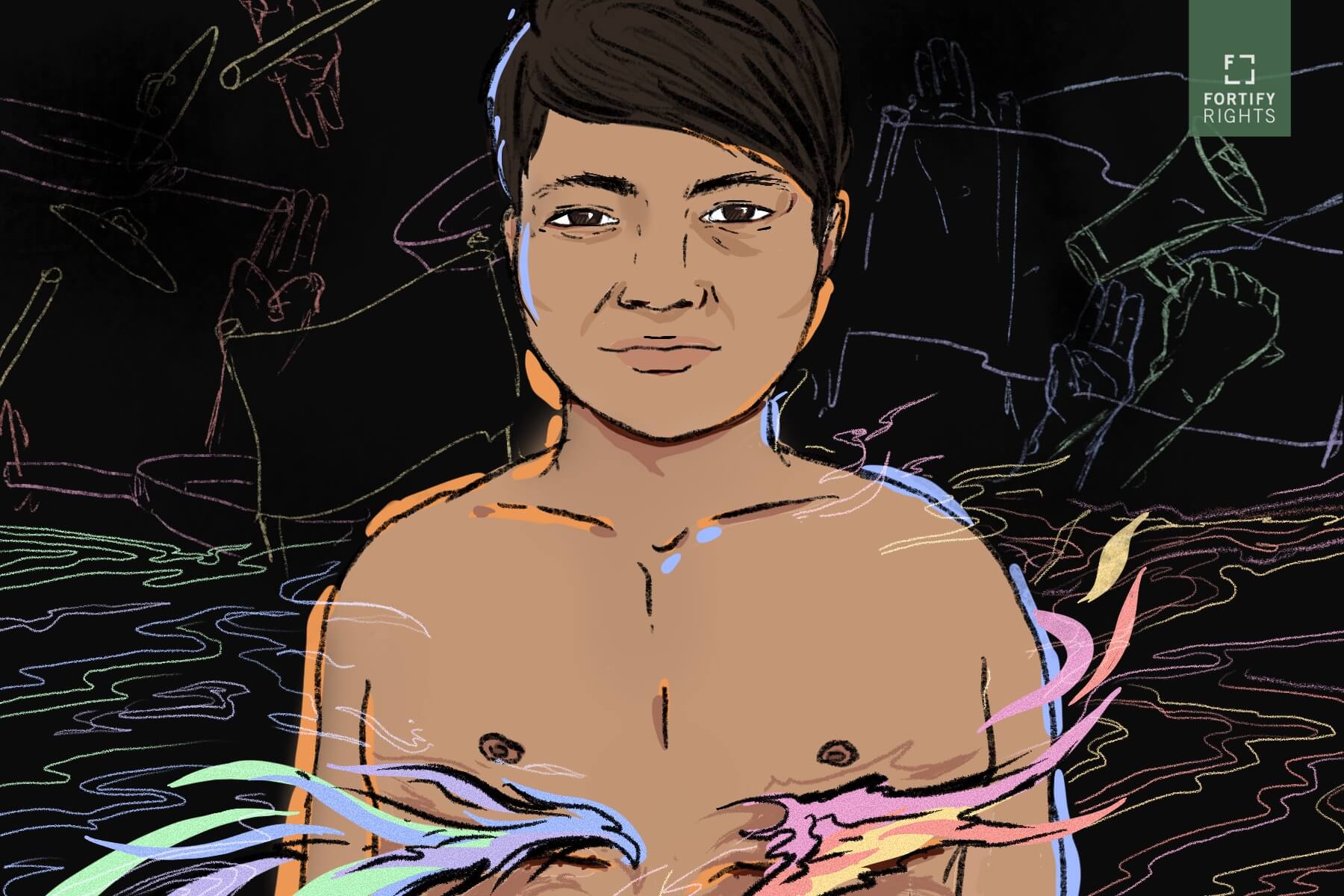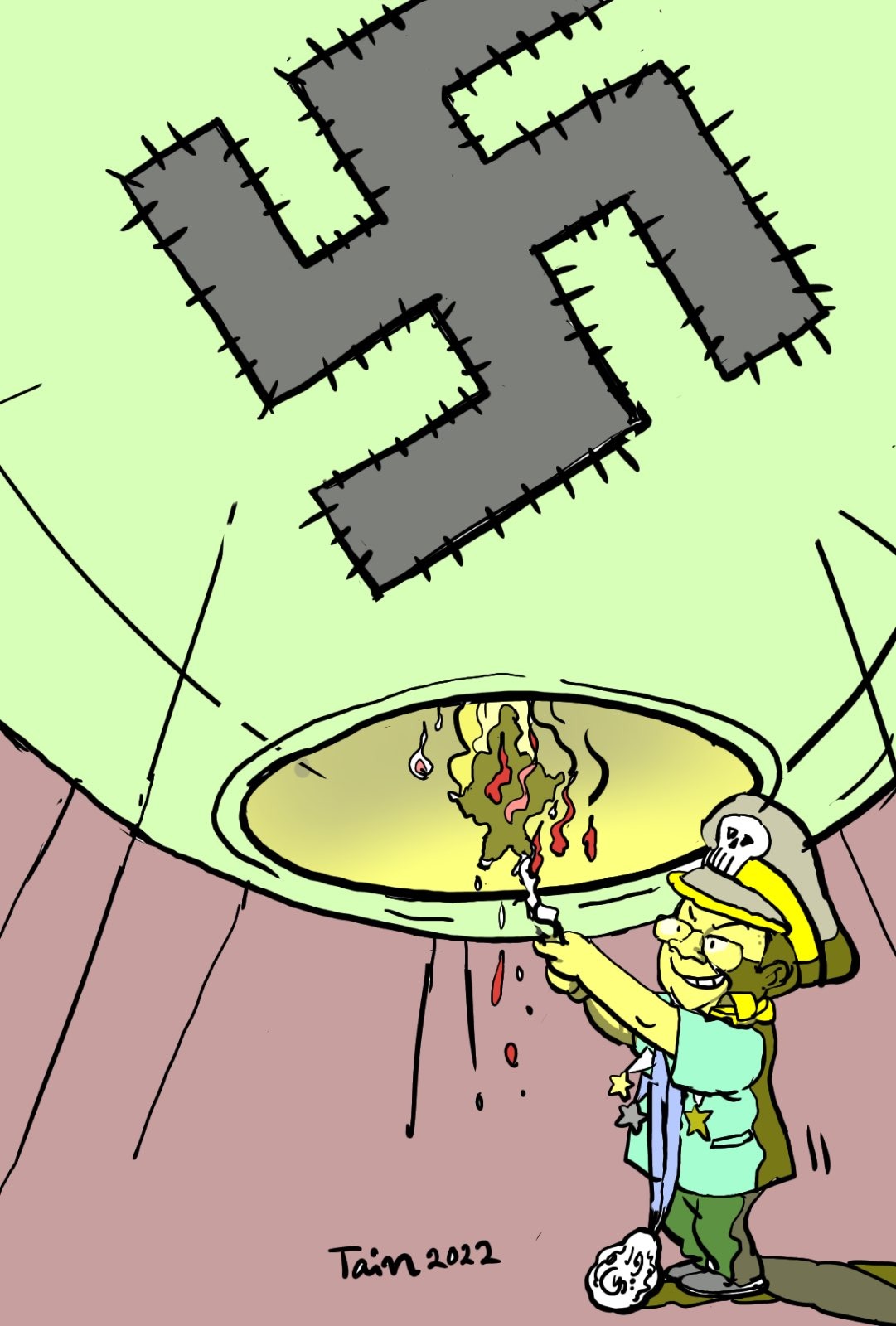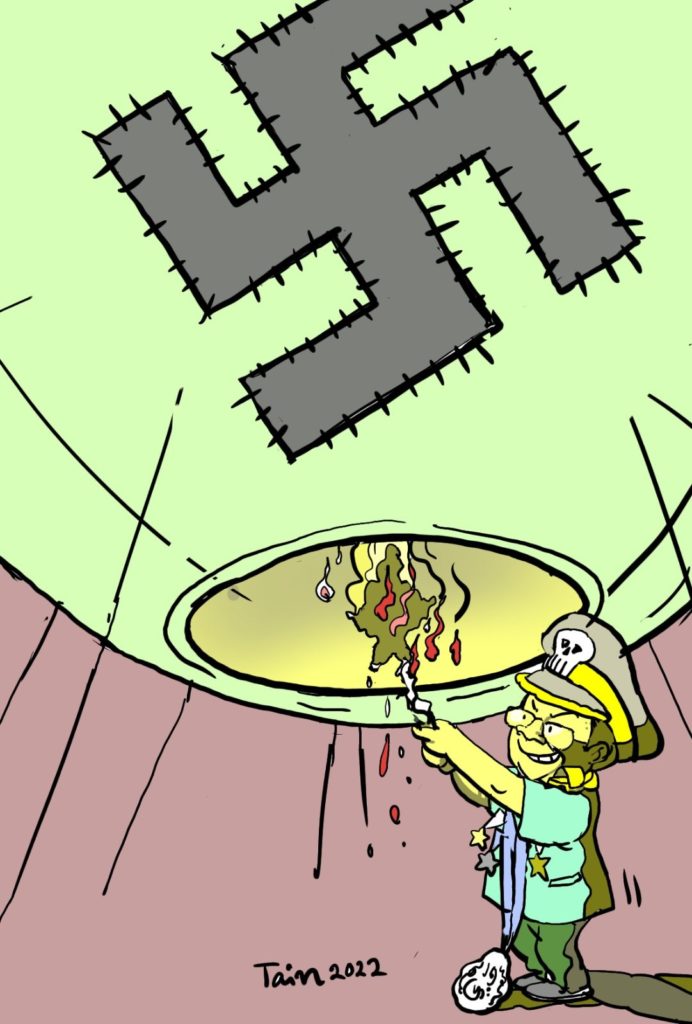By Paul Greening
A project is being planned to support a number of vulnerable communities in Burma. It will be funded by the World Bank and implemented by the World Food Programme (WFP) and the International Committee of the Red Cross (ICRC). They plan to engage with relevant ministries, local authorities, the General Administration Department (GAD) and the Myanmar Red Cross Society (MRCS). In other words, these international organizations would be engaging with the military junta. This means the aid would be used for its own strategic interests, rather than reaching those in need. Those most in need are living in rural areas which have become anti-coup resistance strongholds. In fact, in this project’s documents there is no mention of the attempted coup, the violence, or the war crimes committed by the junta.
The World Bank calls it the “Myanmar Community Resilience Project (MCRP).” The plan states that “the objective of the MCRP is to maintain and build resilience of vulnerable populations to enable their future development. ICRC interventions under the Project will support livelihoods support (cash assistance and delivery of seeds, tools and fertilizer to farmers) and small-scale infrastructure (water supply, access to sanitation, waste management systems, shelters, roads, community buildings) activities. Based on available data on the humanitarian situation the focus on the proposed activities would likely be in Chin, Rakhine, Kachin, Shan, Kayah and Kayin states, and Magway, Mandalay and Sagaing regions in Myanmar.”
These areas are experiencing the most intense fighting where the junta’s State Administration Council (SAC) have limited control and have suffered a number of defeats. The most efficient method of aid delivery in these areas is through Civil Society Organisation (CSOs) who know their areas and can circumvent many of the junta controls. Working through bodies that SAC controls will only allow them to weaponize the aid.
There is the usual list of potential risks to the project such as, “Solid waste management risks from inappropriate disposal of aid packaging or construction waste;” and how they will be mitigated but no mention of the attempted coup and active fighting in the project areas. It is as if much of the project document was copied and pasted from previous documents produced prior to the coup. There are three project documents namely, “MYANMAR COMMUNITY RESILIENCE PROJECT ENVIRONMENTAL AND SOCIAL MANAGEMENT FRAMEWORK”, “ENVIRONMENTAL AND SOCIAL COMMITMENT PLAN (ESCP)” and “Stakeholder Engagement Plan” totaling 103 pages. I will only deal with the more troubling elements of the plan. Each of these documents says, “DRAFT FOR CONSULTATIONS” so it may not be too late to stop this project and the support it will give to the junta.
The first statement of note is, “Myanmar Red Cross Society (MRCS) will act as an implementing partner for activities under the livelihoods assistance component.” As is well known the MRCS is under the control of the military so naturally will be directed and controlled by the military especially at a time, they are fighting and failing to gain control of the country. It goes on to describe how the MRCS will be, assessing, distributing, and monitoring components of the project. It doesn’t take a genius to see how the aid will be manipulated. The emphasis in the project documents is on monitoring the environmental impact of the project which is of course very important but it ignores the elephant in the room. The uprising against the military and on-going civil war!
However, it does make mention that,
“Specific areas of intervention will be chosen based on the following criteria:
• Presence of conflict and resulting protection concerns and weapon contamination;
• Concentrations of IDPs;
• Areas seeing or likely to see significant numbers of IDPs or returnees;
• Areas previously affected by the conflict and which are in proximity to frontlines (high degree of
volatility);
• Added value of ICRC presence (including lack of duplication with other humanitarian actors)”
Of course, these areas are where there is the strongest resistance and the ones the junta is less likely to allow aid. It is not explained how this conundrum will be solved except by appeasing the junta which seems to be the case.
They seem to consider the junta the ‘government’ and the resistance as being the problem. This is how they describe the attempted coup and the brutality of the junta,
“In February 2021, following an increase in political tensions, the military took over the government and declared a state of emergency. Since then, widespread protests have taken place across the country. Violence during political demonstrations and security operations resulted in deaths, injuries and people being detained. The formation of dozens of people’s defense forces, and the use of improvised explosive devices, targeted killings and other acts of violence by those opposing the government also led to casualties.” So it seems those who opposed the military violence are in fact the ones that are at fault.
The project documents were obviously written before August this year because it is stated, “The situation in Rakhine State has remained relatively calm.” Apparently, the military is not responsible for the travel restrictions in Rakhine, rather, “Communal tensions restrict movement for many people, limiting their access to basic services and livelihoods.” The project documents are a white wash and an appeasement to the junta. The attempted coup, military brutality, torture, rape and mass burning of villages is referred to as, “recent political unrest”.
For the identification of 31,250 IDPs for cash grants the local authorities, meaning the junta, will be involved. One suspects that the National Unity Government (NUG) local authorities will not be consulted in areas where the junta doesn’t have control, such as in Sagaing and Magway. Similarly for the identification of IDP farmers to receive seed, fertilizer and tools will include the local authorities. Community infrastructure component of the project will also depend on “government restrictions”. In the project activities ‘Environmental and Social Risks and Impacts’ column there is no mention of the war. There are tables about mitigating risks and impacts that deal with for example, “Store fuels and chemicals in areas with impermeable ground.” But no mention of the war or the junta weaponizing the aid.
In their “Exclusion List” list of projects that are not allowed most refer to adverse environmental impacts but strangely none refer to supporting a brutal military regime. Environmental and Social Screening Questionnaires are included in the annex but again the risk of conflict is not included. In the annexes the only reference to the war is in Annex 8 Landmine Procedures and Annex 9 Security and Safety – Field Access Measures. “Operating in volatile and hazardous contexts” in the latter is the closest it comes to mention the conflict. It is almost as if it doesn’t really exist.
Stakeholder Engagement Plan is more of the same with reference to, “regular meetings with local authorities”. The ICRC and MRCS have already engaged with various stakeholders such as, “Village/Township government: Representatives from General Administrative Department at different levels such as village administrator and/or village tract administrator and/or township administrator; township development committees; and local representatives of the Department of Agriculture, Livestock and Irrigation. State government: Representatives from the General Administrative Department.”
So, in the conceptualization of this project they have already engaged thoroughly with the junta representatives. To be fair they also state that there have been consultations with “Civil society: Civil society organizations and networks, youth organizations, women organizations, and human rights organizations. • Non-state armed groups: People’s Defense Forces and other non-state armed groups in Shan, Chin, Kachin and Rakhine states, and Magway and Sagaing regions.”
It would be interesting to see the extent and content of these engagements. To ensure access, ICRC stresses “maintaining advocacy channels and continuous humanitarian dialogue with authorities on the importance of facilitating timely access to communities in need so that the planned humanitarian activities can be carried out.”
To be generous this is naïve. The junta are controlling and blocking the access to communities. If access is given it will be for the advantage of the military. For some of the project components the responsible parties for monitoring are “ICRC Staff, MCRS Staff and Volunteers Local Representatives for Department of Agriculture, Livestock and Irrigation”. Except for ICRC staff the rest are under military direction. The implications are clear. ICRC are keen to deal with grievances “The main objective of a grievance mechanism is to resolve complaints in a timely, effective and efficient manner that satisfies all parties involved.”
One of the methods of doing this are hotlines but unfortunately the numbers are not given in the project document. The Grievance Intake form is included though which includes, “Description of the Grievance:” and “Resolution method requested by the complainant”. An example may be, “the project supports the junta’s legitimacy and allows aid to be weaponized by the military.” The requested resolution is to “completely revise the project to exclude the junta and work through the NUG, EROs [Ethnic Resistance Organisations] and CSOs.”
In conclusion this project works with MRCS, local authorities, and junta ministries to supports the military in their efforts to gain and cement control. The aid will be used to further the military agenda to the detriment of the resistance and the people. In a military dictatorship any idea of local authorities being detached from the military and a civil administration is farcical. Military officers are the heads of township administrative councils. The whole purpose of GAD and its local authority is surveillance and coercion of the population serving the military. This means it only cares about the regime’s survival and is directly participating in the violence against the civilian population. This is what the ICRC and WFP with World Bank funding will be supporting. If the project goes ahead, they will be completely compromised and complicit in the junta’s atrocities. In addition, local groups and communities, especially IDPs don’t trust the junta and have already refused aid from organisations engaging with the junta.
ICRC claims this project is for the most vulnerable in Myanmar so perhaps they should listen to them. Instead of supporting the junta, ICRC and the World Bank should, as mentioned in recent articles on the UN, disengage with the junta and support humanitarian resistance and engage formally with the NUG and EROs and support CSOs and Community-Based Organisations (CBOs) to scale up.
Media advisory by the Karen Peace Support Network stated “The food aid has been delivered through border-based Karen organisations, using locally governed aid structures — the building blocks of a new federal democratic Burma — without providing any military, political or financial benefit to the SAC junta. While concerns mount that UN humanitarian aid via Rangoon is benefiting the junta and not reaching the most needy beneficiaries, it is inexcusable that existing, effective border-based food aid programming is facing huge funding shortfalls and remains largely ignored by international donors.”
A briefing paper by the Special Advisory Council for Myanmar, called Effective Control in Myanmar states “Foreign governments, international institutions and others cannot engage with the junta on the assumption that it has effective control or as if it is the de facto authority in Myanmar.”
—
Paul Greening is a retired senior UN staff member with extensive experience with Burma.
DVB publishes a diversity of opinions that does not reflect DVB editorial policy. We’d like to hear what you think about this or any of our stories: [email protected]



